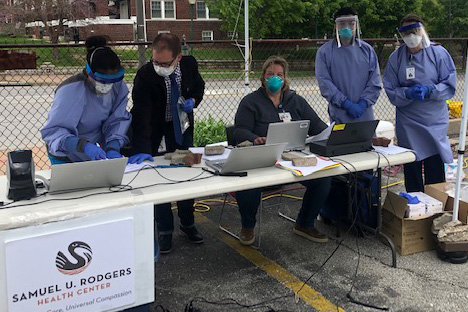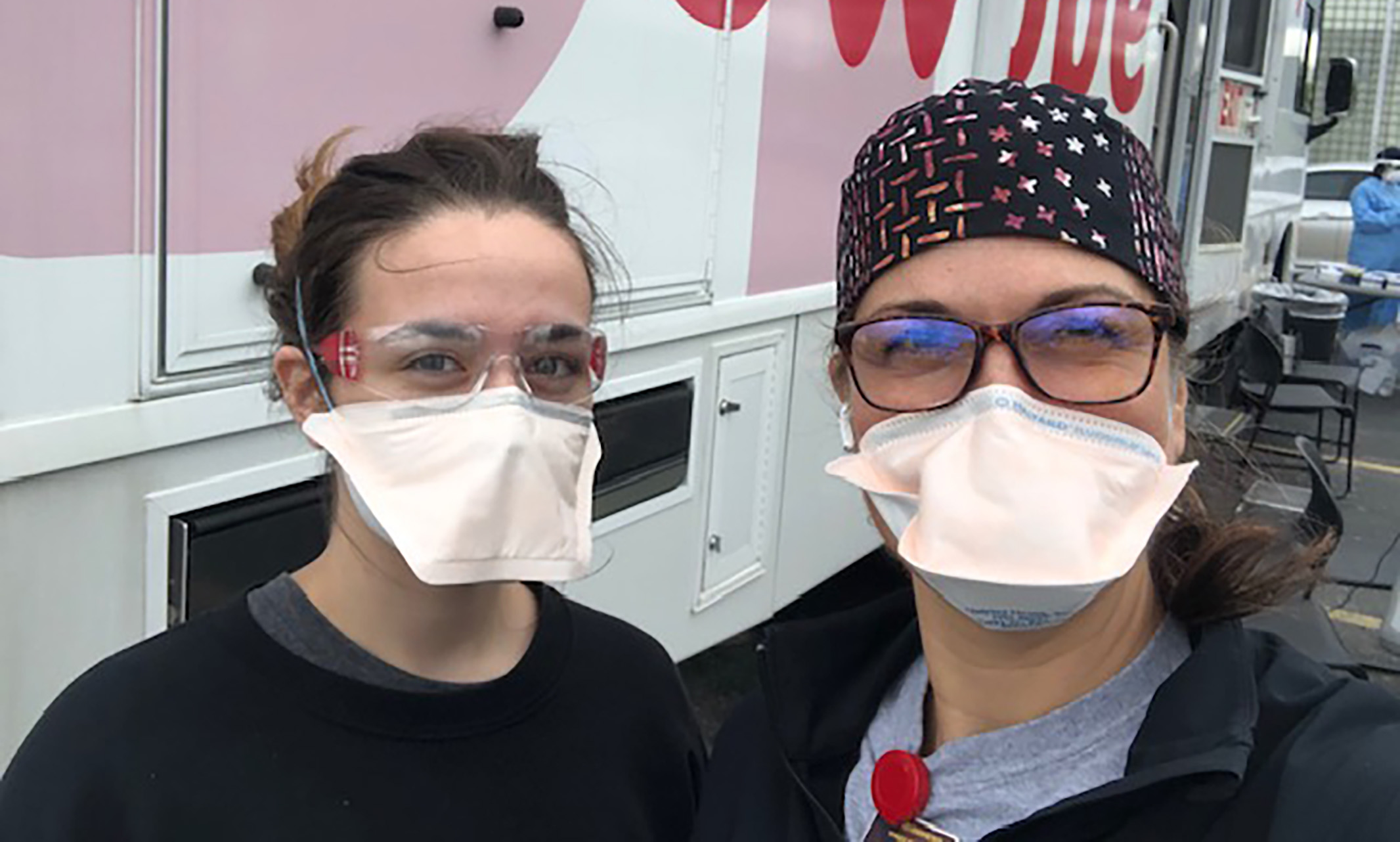Earlier this spring, the Kansas City Missouri Health Department received federal funding to provide COVID-19 testing. What the department lacked was the manpower to support the many testing sites across the city.
It didn’t take long for the UMKC Health Sciences Campus to fill the void. More than 80 students from the schools of dentistry, medicine and pharmacy answered the call for helpers. In May and June, they volunteered 28 three-hour blocks of time at 18 testing locations through the greater Kansas City area. Many of those were at schools and churches.
“This is a great example of a long-running collaboration with the health department,” said Jannette Berkley-Patton, Ph.D., director of the Health Equity Institute. “Especially since our students could help expand their capacity to conduct testing in communities hard hit by COVID-19.”
Stefanie Ellison, M.D., associate dean for learning initiatives at the School of Medicine, said students across the campus were eager to help.
“In 24 hours, I gave a group of students the chance to communicate the need across social media sites and get the word out,” Ellison said. “They stepped up to fill in the volunteer spots.”
 The testing was offered at federally qualified health centers such as the KC Care Clinic, Swope Health and the Samuel Rogers Health Center.
The testing was offered at federally qualified health centers such as the KC Care Clinic, Swope Health and the Samuel Rogers Health Center.
Carole Bowe Thompson, project director for the Health Equity Institute, helped organize the volunteer efforts.
While workers at the testing centers did the actual COVID-19 testing, Thompson said the students worked in a supporting role, handling patient check-in and registration, providing patient education, labeling and securing specimen tubes and even directing car and walk up traffic up to the test sites.
“They did the pre-screening, going over COVID-19 symptoms and collecting health and other important intake information,” Thompson said. “The testing centers didn’t have the support they needed for taking care of traffic. They needed the students to help direct traffic.”
Many of the students said the experience helped them realize the importance of working with other health care providers and how community outreach can play a large role in public health.
“I learned that I am in a prime position to assist those in need,” said Rico Beuford, a sixth-year medical student. “I don't necessarily need a medical degree to open up access to health care resources to vulnerable communities. I think it's important for each us to realize how much we can impact those who are on the periphery of society and that are largely neglected by it.”
Sixth-year med student Emma Connelly was one of those who helped with the screening process, taking basic patient information and asking those being tested if they had experienced symptoms or been exposed to anyone with the coronavirus.
“Being a medical student, I am not technically on the front lines, so I thought this would be a small way to help out,” Connelly said. “I felt that it was important to help out no matter how small the task was. And if I could help prevent at least one COVID-19 positive individual from spreading it to their family or friends, it was totally worth the effort.”
Ellison said students found a wide variety of other ways to help those in need as well. Some spent time simply talking online with senior center residents to keep them company and help them feel less isolated. Students volunteered to tutor and check on grade school students who were suddenly faced with online school while their parents had to work. Others found their green thumbs to help with gardening, harvesting and distributing produce, while some provided babysitting for health care workers.
“I am so overwhelmed by our students’ efforts to help out,” Ellison said.
Thompson said she hoped the volunteer efforts would continue through the summer and pick up steam when students returned to campus for the fall semester.
“There will be plenty more opportunities,” she said. “The health department is not going to stop doing testing.”

